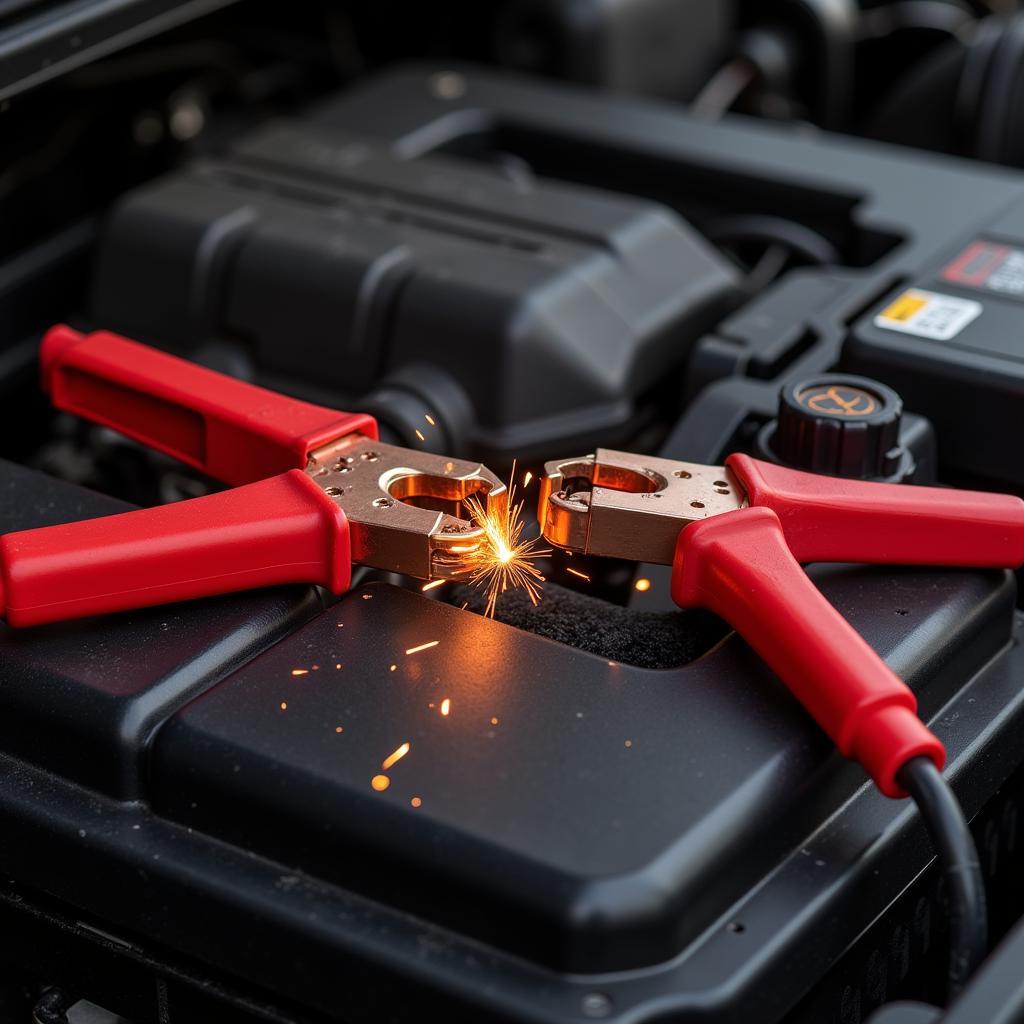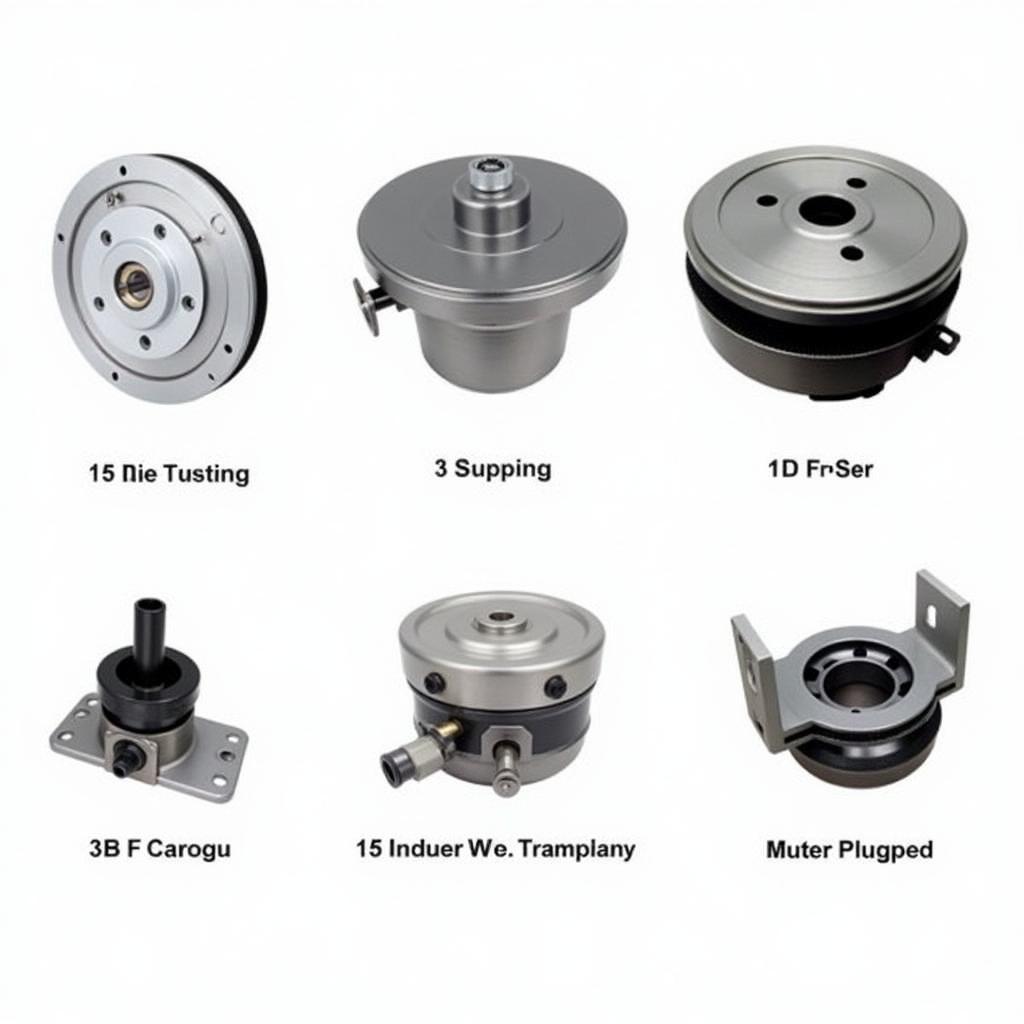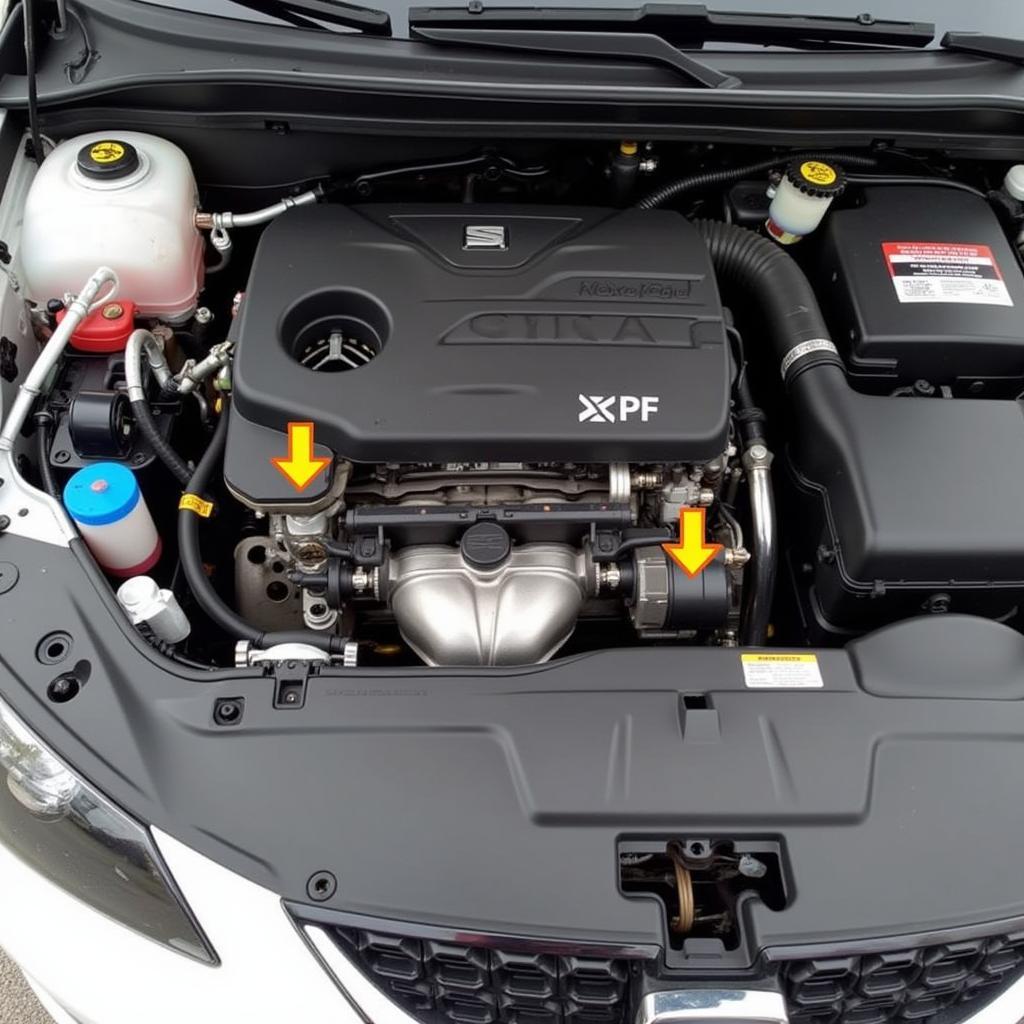Hearing a rapid clicking sound when you turn your car key? That dreaded “dead battery clicking” is a common problem, but often easily diagnosed and solved. In this guide, we’ll delve into the reasons behind that clicking, and how you can get back on the road, whether you’re a seasoned DIYer or prefer professional assistance. We’ll explore solutions from simple jump starts to more complex issues involving the starter or alternator.
 Car Battery Clicking Sound: A Close-up view of a car battery with jumper cables attached, emitting clicking sounds. The positive and negative terminals are clearly visible, along with the cables connected for a jump start. Sparks are visible near the terminals, indicating a connection issue. The background shows the darkened engine bay of a car.
Car Battery Clicking Sound: A Close-up view of a car battery with jumper cables attached, emitting clicking sounds. The positive and negative terminals are clearly visible, along with the cables connected for a jump start. Sparks are visible near the terminals, indicating a connection issue. The background shows the darkened engine bay of a car.
Why is My Car Battery Clicking?
The clicking sound you hear is the starter solenoid rapidly engaging and disengaging. It’s trying to draw power from the battery to crank the engine, but the battery doesn’t have enough juice. Think of it like trying to start a lawnmower with a nearly empty fuel tank – it sputters and struggles, but doesn’t quite have the power to turn over. Several things can cause this issue, from simply leaving your headlights on overnight to more complex problems like a car battery malfunction.
Common Causes of Dead Battery Clicking
- Age: Batteries have a limited lifespan, typically 3-5 years. As they age, their ability to hold a charge diminishes.
- Parasitic Drain: Even when your car is off, certain systems like the clock and radio can draw a small amount of power. A faulty component can draw excessive power, draining the battery over time.
- Extreme Temperatures: Both hot and cold weather can impact battery performance. Extreme heat can evaporate battery fluid, while extreme cold can slow down chemical reactions within the battery.
- Corrosion: Corrosion on the battery terminals can disrupt the flow of electricity, leading to a “dead battery” scenario, even if the battery itself has some charge.
- Alternator Problems: The alternator recharges the battery while the engine is running. A faulty alternator can prevent the battery from recharging properly, leading to a clicking noise and a dead battery. If you suspect a problem, learn how to tell if it’s a bad alternator or bad battery.
What To Do When Your Car Battery is Clicking
If you’re faced with a clicking car battery, don’t panic! There are a few troubleshooting steps you can take:
- Jump Start: Try jump-starting your car using jumper cables and another vehicle or a portable jump starter. This can provide the temporary boost needed to start your engine.
- Check Connections: Inspect the battery terminals for corrosion. If they appear corroded, clean them with a wire brush and baking soda solution. Tighten the terminal connections.
- Test the Battery: If the jump start works, drive to an auto parts store or mechanic to have your battery tested. They can determine if the battery is holding a charge properly.
- Inspect the Alternator: If you suspect your alternator might be the culprit, you can test the alternator at a parts store or consult your mechanic for a thorough inspection and diagnostics.
Remote Diagnostics and Software Solutions
Sometimes a clicking battery can be indicative of deeper software or electrical issues. As a specialist in automotive electrical engineering, I utilize remote diagnostics and software programming to identify and fix these problems. These tools allow me to access the car’s computer system remotely, diagnose issues, and even install software updates, in some cases, resolving issues without the need for a physical visit.
“Remote diagnostics can be a game-changer,” says automotive expert, John Smith, Senior Electrical Engineer. “It allows for faster and more efficient troubleshooting, often resolving problems that traditional methods might miss.”
i think my car battery is dead is a common search query, and many people benefit from remote diagnostic services in such situations.
Can a Dead Battery Be Revived?
Sometimes, a dead lead acid battery can be revived, but it depends on the cause and extent of the damage. Sulfation, a common cause of battery failure, can sometimes be reversed with specialized chargers. However, if the battery is physically damaged or excessively old, replacement is often the best solution.
Conclusion
A dead battery clicking is a sign that your car needs attention. While a jump start might get you going temporarily, it’s crucial to identify the root cause. Whether it’s a simple fix like cleaning corroded terminals or a more complex issue requiring remote diagnostics and software solutions, addressing the problem promptly will save you time and frustration down the road. Don’t ignore that clicking – take action and get back on the road! Remember to consider factors like battery age and potential alternator issues. The 2017 Buick Encore, for instance, has known 2017 buick encore battery problems that owners should be aware of.


